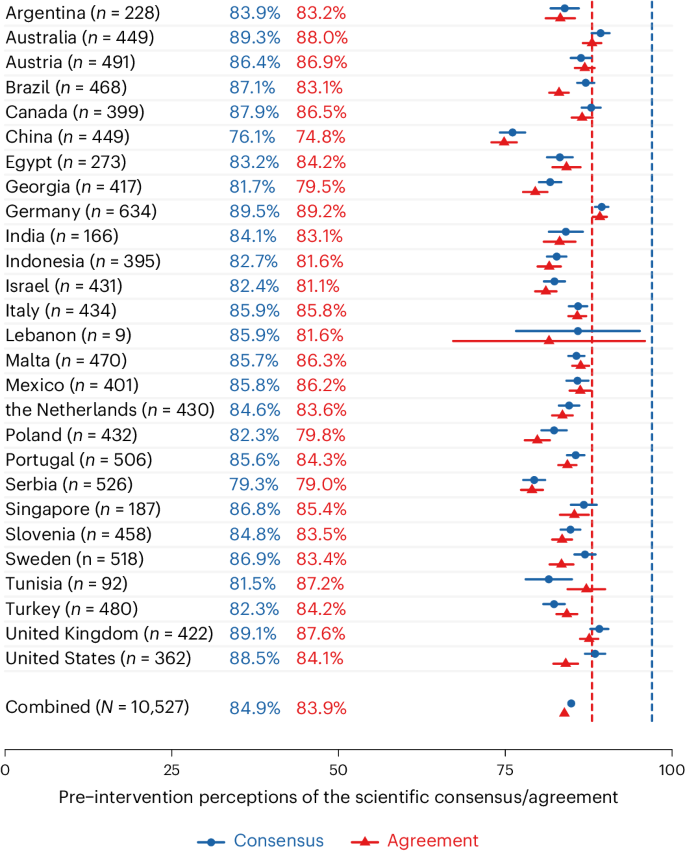2024-08-26 コロンビア大学
<関連情報>
- https://www.publichealth.columbia.edu/news/communicating-consensus-strengthens-beliefs-about-climate-change
- https://www.nature.com/articles/s41562-024-01928-2
気候変動に関する科学的コンセンサスの伝達に関する27カ国のテスト A 27-country test of communicating the scientific consensus on climate change
Bojana Većkalov,Sandra J. Geiger,František Bartoš,Mathew P. White,Bastiaan T. Rutjens,Frenk van Harreveld,Federica Stablum,Berkan Akın,Alaa Aldoh,Jinhao Bai,Frida Berglund,Aleša Bratina Zimic,Margaret Broyles,Andrea Catania,Airu Chen,Magdalena Chorzępa,Eman Farahat,Jakob Götz,Bat Hoter-Ishay,Gesine Jordan,Siri Joustra,Jonas Klingebiel,Živa Krajnc,Antonia Krug,… Sander van der Linden
Nature Human Behaviour Published:26 August 2024
DOI:https://doi.org/10.1038/s41562-024-01928-2

Abstract
Communicating the scientific consensus that human-caused climate change is real increases climate change beliefs, worry and support for public action in the United States. In this preregistered experiment, we tested two scientific consensus messages, a classic message on the reality of human-caused climate change and an updated message additionally emphasizing scientific agreement that climate change is a crisis. Across online convenience samples from 27 countries (n = 10,527), the classic message substantially reduces misperceptions (d = 0.47, 95% CI (0.41, 0.52)) and slightly increases climate change beliefs (from d = 0.06, 95% CI (0.01, 0.11) to d = 0.10, 95% CI (0.04, 0.15)) and worry (d = 0.05, 95% CI (−0.01, 0.10)) but not support for public action directly. The updated message is equally effective but provides no added value. Both messages are more effective for audiences with lower message familiarity and higher misperceptions, including those with lower trust in climate scientists and right-leaning ideologies. Overall, scientific consensus messaging is an effective, non-polarizing tool for changing misperceptions, beliefs and worry across different audiences.



